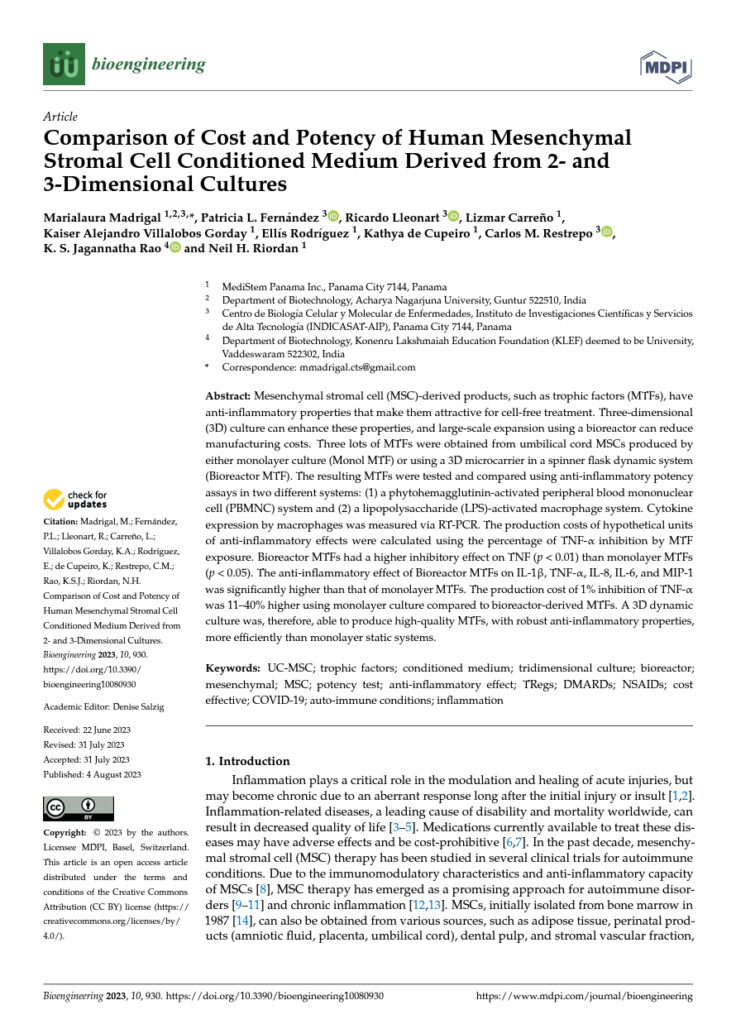August 2023
Comparison of Cost and Potency of Human Mesenchymal Stromal Cell Conditioned Medium Derived from 2- and 3-Dimensional Cultures.
Journal Citation
Bioengineering (Basel, Switzerland), 10(8), 930.
Authors
Madrigal, M., Fernández, P. L., Lleonart, R., Carreño, L., Villalobos Gorday, K. A., Rodríguez, E., de Cupeiro, K., Restrepo, C. M., Rao, K. S. J., & Riordan, N. H.
Abstract
Mesenchymal stromal cell (MSC)-derived products, such as trophic factors (MTFs), have anti-inflammatory properties that make them attractive for cell-free treatment. Three-dimensional (3D) culture can enhance these properties, and large-scale expansion using a bioreactor can reduce manufacturing costs. Three lots of MTFs were obtained from umbilical cord MSCs produced by either monolayer culture (Monol MTF) or using a 3D microcarrier in a spinner flask dynamic system (Bioreactor MTF). The resulting MTFs were tested and compared using anti-inflammatory potency assays in two different systems: (1) a phytohemagglutinin-activated peripheral blood mononuclear cell (PBMNC) system and (2) a lipopolysaccharide (LPS)-activated macrophage system. Cytokine expression by macrophages was measured via RT-PCR. The production costs of hypothetical units of anti-inflammatory effects were calculated using the percentage of TNF-α inhibition by MTF exposure. Bioreactor MTFs had a higher inhibitory effect on TNF (p < 0.01) than monolayer MTFs (p < 0.05). The anti-inflammatory effect of Bioreactor MTFs on IL-1β, TNF-α, IL-8, IL-6, and MIP-1 was significantly higher than that of monolayer MTFs. The production cost of 1% inhibition of TNF-α was 11-40% higher using monolayer culture compared to bioreactor-derived MTFs. A 3D dynamic culture was, therefore, able to produce high-quality MTFs, with robust anti-inflammatory properties, more efficiently than monolayer static systems

